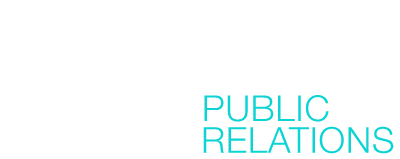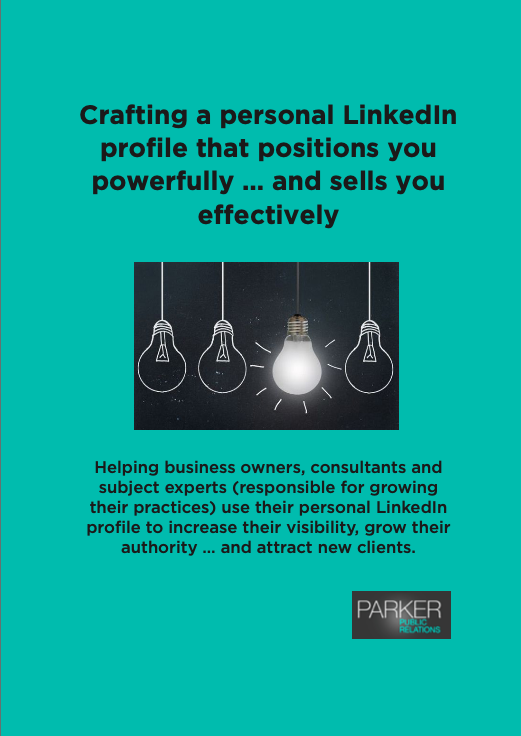
I’m often asked this question by people attending my personal branding and thought leadership masterclasses so I thought I’d do a review of Australia’s key influencers and acknowledged thought leaders and determine what it is these people have in common.
(A quick heads up: Thought leaders are those unique individuals we turn to for their wisdom, knowledge, opinions and ideas. They consistently add to the body of knowledge in their sectors, challenge current thinking and put forward their ideas for the future.)
So what is is that sets thought leaders apart from other high achievers?
Innovative, ideas people
Thought leaders are innately curious and optimistic about how things can be better and are not locked into ‘how things are’.
As a result they are constantly looking for new and better ways of doing things.
They know the challenges, failings, shortcomings and problems facing their industries or their communities and they more often than not, have the answers for fixing or addressing these problems … and where they don’t have the answers, they single-mindedly seek them out.
One of Australia’s leading intensive care specialists and an active voice on end of life issues, Professor Charlie Corke, is a great example of this. With changes to life-saving technology, he observed with horror how sick and unconscious patients were increasingly being kept alive simply because their families were unaware of their end-of-life wishes, or unable to follow through with these wishes. Determined to put an end to this unnecessary suffering, he spearheaded the development of the MyValues platform which enables people to clarify and document how far they would like end-of-life treatment to be taken – would it be treatment at all costs, regardless of the pain and suffering or would it be about quality of life and the opportunity to die with dignity? His innovation has and will continue to ensure that patients’ final wishes can now be shared with family and doctors, ensuring they die in a manner of their choosing.
Thought leaders use their status for the greater good
Unlike other high achievers, they understand that thought leadership is not just about advancing themselves or their businesses but is about the greater good of their industries, their communities and the eco-system in which they operate.
As a result they are more likely to use their influential status to drive positive change more broadly.
Take former CEO of Fortescue Metals Group, ‘Twiggy’ Forrest. He is using his thought leadership status to help sell Australia’s brand more effectively overseas and is heading up a major project to do just that. Equally, co-founder of Atlassian, Mike Canon-Brookes is using his influence to push for the creation of a world class technology industry in Australia and to accelerate our transition to renewables.
Then there’s Professor of Quantum Physics in the Faculty of Science at the University of New South Wales, Michelle Simmons, AO, who is using her position to push the creation of a quantum computing industry in Australia and Fred Schebesta, co-founder and director of finder.com.au, who is using his status to accelerate financial literacy in Australia and encourage people to make better financial decisions.
Passionate, courageous and unafraid
While the thought leaders we reviewed have knowledge, expertise and authority by the bucket-load, they are also extremely passionate about what they do and how their work impacts others.
They know how to make passionate arguments to support their thinking and ideas and are unafraid to call out poor work practises and processes, shoddy behaviour and failures in our systems.
Unlike the thought leaders of yesteryear who were careful never to criticise publicly or make themselves a target for criticism, today’s thought leaders have no such qualms.
A great example of this is CEO of Australia’s leading consumer health advocacy organisation, Health Issues Centre (HIC), Danny Vadasz, who is using his thought leadership status to fight for the rights of the health consumer. Since HIC helped expose widespread problems associated with medical devices and implants (particularly pelvic and hernia mesh), Danny has not held back from criticising the entire Australian health system – from politicians to regulators and practitioners.
No-one has been spared.
They are likeable, relatable and intensely human
Thought leaders understand that to build trust and likeability with key audiences, they need to reveal their humanity and show us the ‘person behind the expertise”.
Below are some of our thought leaders who are doing this really well.
Take Inventium’s Dr Amantha Imber. We know that she suffered from ‘imposter syndrome’ (that feeling of being way out of your depth) as did Mike Canon-Brookes.
In fact in his TEDx talk last year Mike confessed to his audience that despite the rapid success of Atlassian, he often felt … and at times still feels … like a fraud. However, he says he has since learned that most highly successful people feel like frauds and like him, have learned how to turn imposter syndrome into a force for good.
Another thought leader who is not afraid to reveal the person behind the expertise is EO & founder of Flamingo AI, Dr Catriona Wallace and mother of five.
In one of her most recent tweets she spoke about what being a mother and entrepreneur means to her: “Unconventional parenting models. My son calls me an ‘Un-Mother’ which translates to – ‘super loving like a mother but don’t actually do anything that mothers do…’
First-class communicators
Without exception all the thought leaders I reviewed are excellent communicators. Clearly they understand that to be influential they need to provide their communities and audiences with regular access to their knowledge, thinking, opinions and ideas.
However, rather than attempting to use every communications’ platform at their disposal, they focus on the platforms where they are most likely to reach their appropriate audiences.
Take Fred Schebesta, cofounder and director of finder.com.au – one of Australia’s largest financial comparison websites. He is communicating his thinking, thought leadership and big ideas via the full gamut of platforms available to him: Fred is a regular contributor for Huffington Post, Business Insider, The Sydney Morning Herald, and news.com.au and often appears on TV and radio sharing his experience as an entrepreneur. He is big on Linkedin, Twitter and YouTube and even has his Personal website.
On the other hand, self-styled anti-coal evangelist, Simon Holmes à Court, prefers to talk to his key audiences just via Twitter and the media.
Ultimately they choose the platforms that work best for them.
Do you believe you have what it takes to be a thought leader?
Do you have something powerful and worthwhile to say, but DON’T know how to position yourself as a thought leader and communicate your thinking, expertise, opinions and big ideas to the world?
We can help. Parker Public Relations provides:
Thought Leadership Coaching and Communications Services. This is directed at those who would prefer to work in partnership with Parker Public Relations as they embark on their thought leadership journey. Working in partnership with us means that while you do the thinking and provide the expertise, we will help get your message out there, saving you the time and allowing you to focus on your business and your core area of activity.
Thought Leadership Masterclasses. These are directed at individuals or groups of people wanting to manage their own thought leadership but who simply need the tools to get started.
- Masterclass 1 – Personal Branding for Thought Leaders. This hands’ on workshop provides attendees with the right tools, knowledge and know-how to take charge of their own personal branding journey and begin building their presence online.
- Masterclass 2 – How to Communicate Like a Thought Leader. This workshop helps attendees understand what stories resonate with their audiences and best position them as thought leaders. They will also learn how to develop their narrative, create a variety of communications’ materials and repurpose these materials across multiple platforms. They also learn how to liaise with the media, conference organisers and other key stakeholders.


